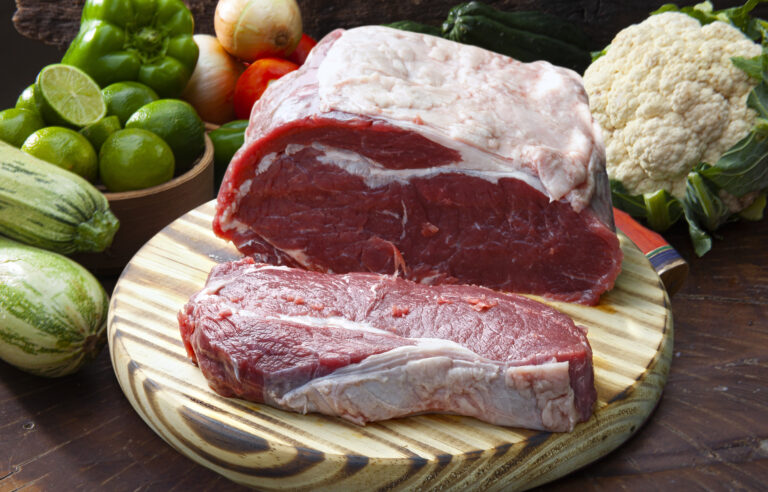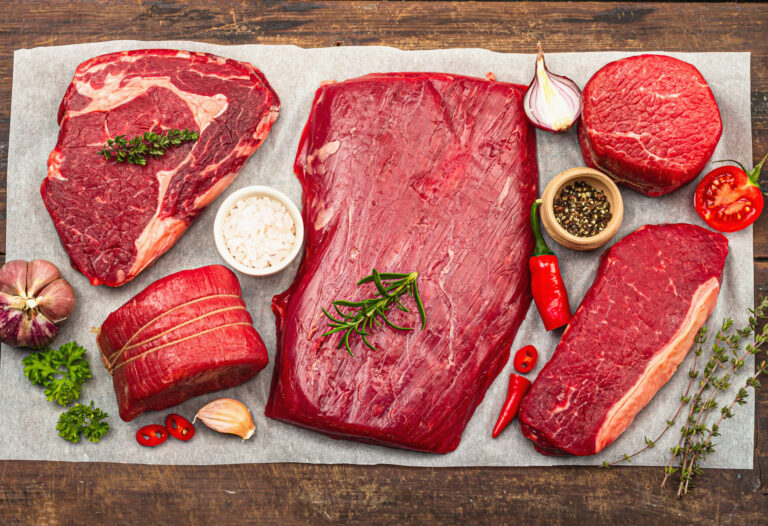7 Best Cuts of Meat for Braising for Mouthwatering Meals
Braising turns tough meat tender and flavorful. Best cuts like chuck roast, short ribs, oxtail, pork shoulder, lamb shanks, and veal shanks are ideal for succulent dishes.

Braising transforms tough cuts of meat into tender, flavorful dishes that melt in your mouth. Discover the best cuts to elevate your next culinary adventure.
Disclosure: As an Amazon Associate, this site earns from qualifying purchases. Thank you!
Selecting Beef for Braising
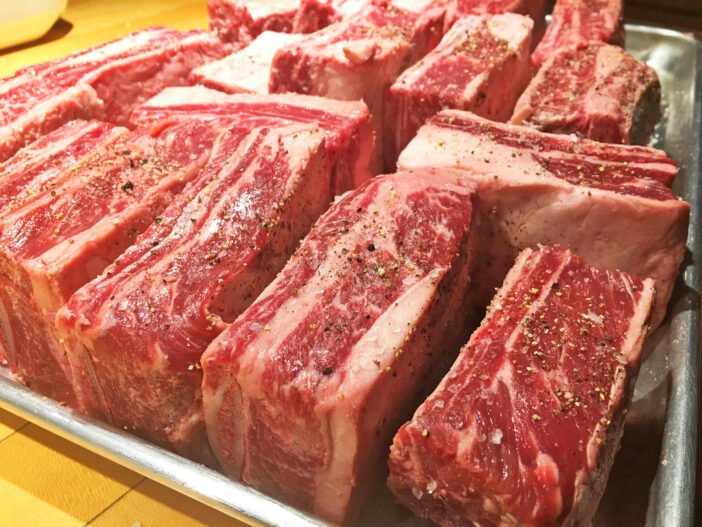
When it comes to braising, selecting the right beef cuts can make all the difference. Let’s explore a few top choices.
Chuck Roast: Flavorful and Economical
Chuck Roast offers a rich taste profile and is budget-friendly. You’ll enjoy its marbling, which creates tender and juicy results after hours of slow cooking. This cut works well in pot roasts and stews.
Short Ribs: Rich in Marbling
Short ribs are known for their deep marbling that adds flavor and moisture. You’ll find these ribs transform into melt-in-your-mouth delicacies. Their high-fat content makes them perfect for dishes like braised Korean short ribs.
Oxtail: Gelatinous and Luxurious
Oxtail is dense in collagen, turning gelatinous when braised. You’ll appreciate the luxurious, thick texture it brings to soups and stews. This cut is ideal for recipes that require long, slow cooking to release its rich flavors.
Best Pork Cuts for Braising
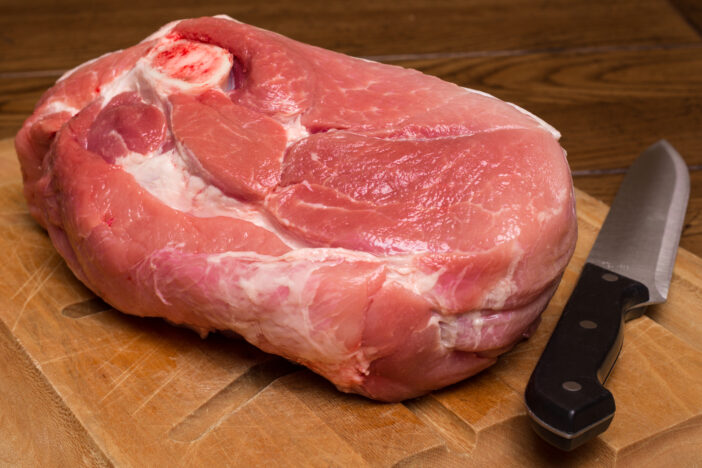
Pork cuts are versatile and full of flavor, making them perfect for braising. These specific cuts will elevate your dishes to the next level.
Pork Shoulder: Ideal for Tenderness
Pork shoulder transforms into melt-in-your-mouth goodness when braised. It’s known for its marbling, which keeps the meat juicy and flavorful. This cut is affordable and widely available, ideal for pulled pork or stews.
Pork Belly: Offers a Flavorful Fat Content
Pork belly offers rich, flavorful fat that braises down to a luscious texture. The combination of meat and fat provides a depth of flavor that’s hard to beat. Use it for dishes like braised pork belly or Asian-inspired recipes.
Choosing Lamb and Veal Cuts

Opt for these cuts to make the most of braising’s magic.
Lamb Shanks: Perfect for Slow-Cooking
Choose lamb shanks for their rich, savory flavor. Their tough connective tissue breaks down beautifully when slow-cooked, creating tender, juicy meat. Add root vegetables, garlic, and herbs for a complete meal.
Veal Shank: Delicate and Tasty
Pick veal shanks if you prefer a milder taste. The delicate meat becomes tender and flavorful when braised with white wine, tomatoes, and aromatic herbs. Serve with risotto or polenta for a traditional pairing.
Poultry and Game Options
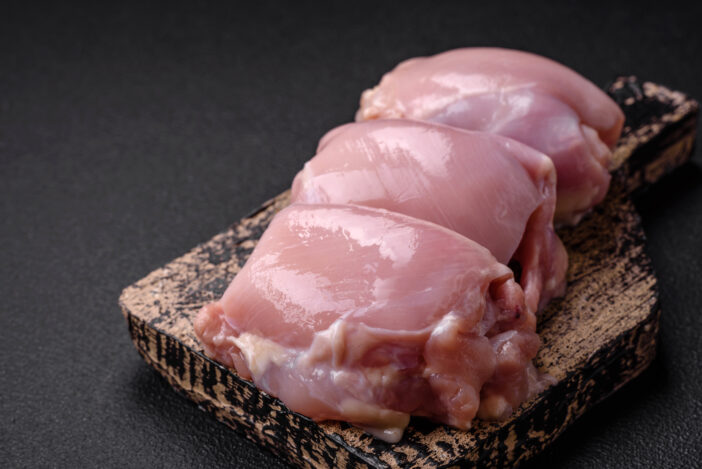
Chicken Thighs: Juicy and Affordable
Chicken thighs are a go-to for braising. They’re affordable and packed with flavor. Their higher fat content keeps them moist during slow cooking. Braise them in a mix of broth, wine, and aromatic herbs for a delicious result. You can serve them with mashed potatoes or rice.
Duck Legs: High Fat for Better Braising
Duck legs shine in braising. Their high-fat content ensures richness and tenderness. Cook them with red wine, oranges, and spices for a gourmet dish. These legs pair well with roasted vegetables or a simple green salad.
Cooking Tips for Braised Meats
Preparing Your Meat: Marinating and Seasoning
Start with quality cuts. Use a marinade of oil, vinegar, and spices to tenderize meat. Season well with salt and pepper before searing. Searing locks in flavors and creates a rich base for braising.
Temperature and Time: Keys to Perfect Braising
Keep it low and slow. Maintain a temperature around 300°F (150°C). Cook for several hours to break down tough fibers. Use a heavy pot with a tight lid. Check liquid levels periodically to avoid drying out.
Frequently Asked Questions
What meats are best for braising?
Cuts like beef chuck roast, short ribs, oxtail, pork shoulder, pork belly, lamb shanks, and veal shanks are excellent for braising due to their tough nature, which transforms into tenderness through slow cooking.
Why should I marinate meat before braising?
Marinating meat with oil, vinegar, and spices helps infuse flavor and tenderize the meat, making the braising process more effective and the final dish more flavorful.
How do I prevent my braised meat from drying out?
Ensure to cook at a low temperature around 300°F (150°C) and periodically check liquid levels. Cooking in a heavy pot with a tight lid helps retain moisture.
What vegetables pair well with braised meat?
Root vegetables like carrots, onions, and garlic are ideal as they add rich flavors when slow-cooked with the meat.
How long should I braise meats for optimal tenderness?
Cooking times can vary but generally, it’s best to braise meats for several hours until they reach the desired level of tenderness. Usually, 2-4 hours is common for most cuts.
What temperature should I braise meat at?
A low temperature of around 300°F (150°C) is recommended to slowly break down the tough fibers and achieve tender results.
Do I need to sear the meat before braising?
Yes, searing the meat before braising enhances flavor through the Maillard reaction, locking in juices and creating a rich base for your dish.
Can I braise meat without a heavy pot?
While it’s possible, using a heavy pot with a tight lid is preferred as it helps maintain consistent heat and moisture levels, ensuring better results.
Should I add herbs and spices before or after braising?
Add herbs and spices before braising to infuse the meat with rich flavors throughout the cooking process. Fresh herbs can also be added near the end for a burst of freshness.
How do I check if my braised meat is done?
The meat should be tender enough to easily pull apart with a fork, indicating that it has been sufficiently braised and is ready to be served.





